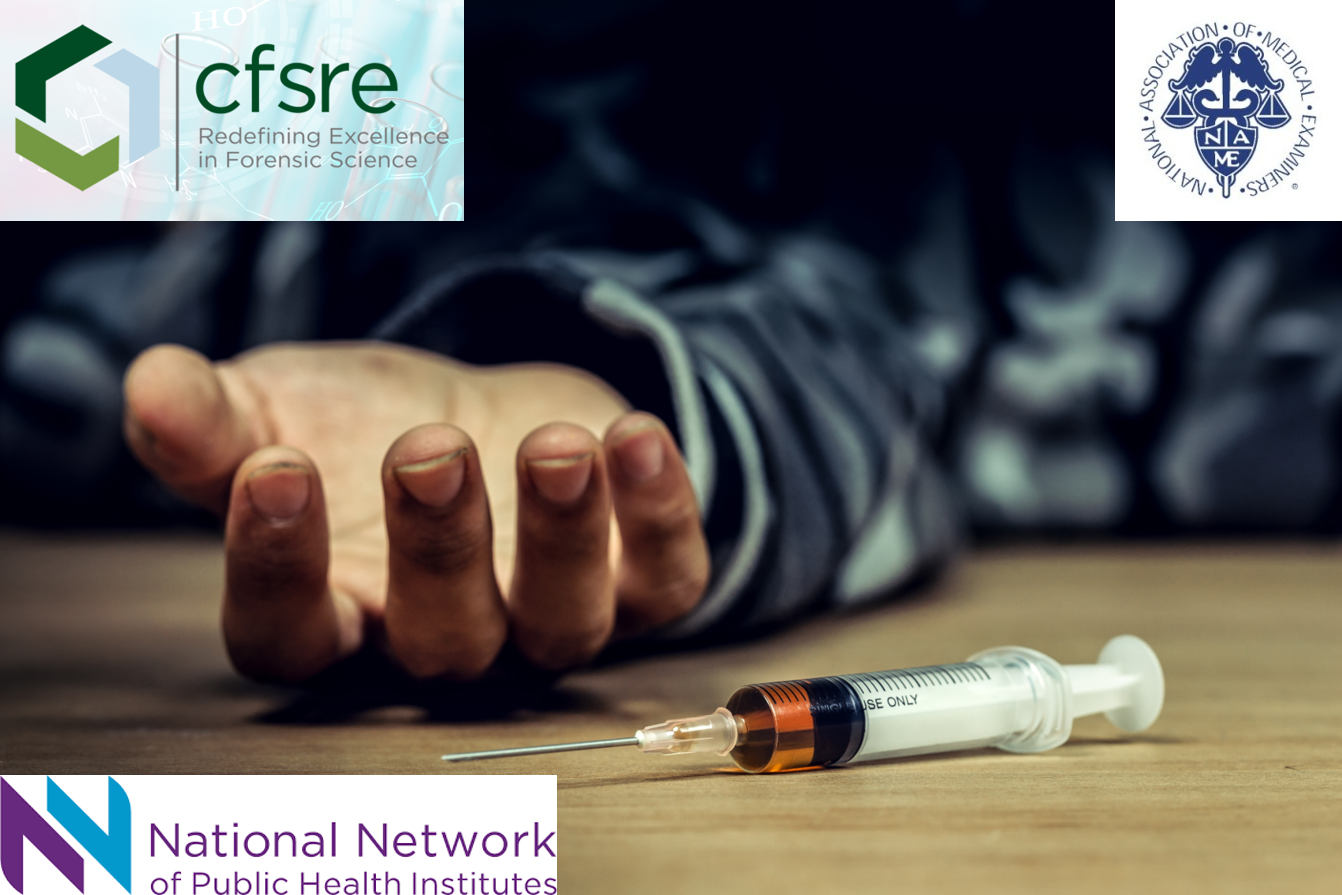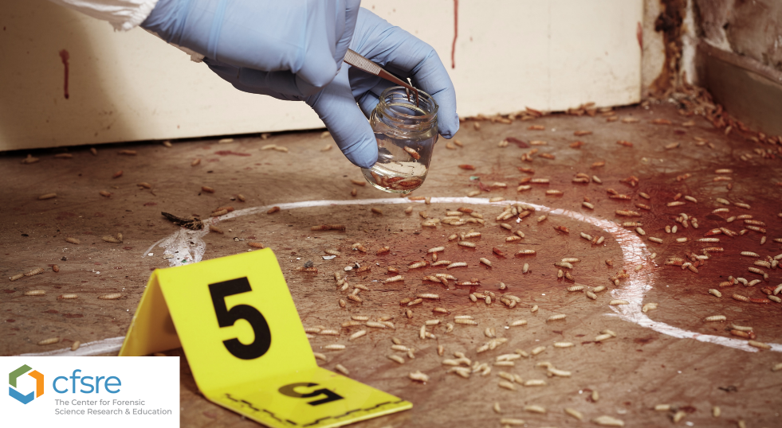Practitioners, educators, law enforcement personnel and the legal community require continuing education in the constantly advancing field of forensic science. Take advantage of our preeminent expert faculty to enhance your and your labs’ knowledge-base and skill-sets to stay abreast of novel developments in the field. With our comprehensive offering of engaging workshop and continuing education courses, online training courses, internships and certificate programs, you are sure to find a training opportunity to suit your needs. All of our professional development offerings provide you the chance to learn from dynamic faculty on unique topics as well as from internationally recognized leaders in their fields.
 |
This talk aspires to begin the process of creating illness scripts and diagnostic reasoning models for chemical and simple asphyxiant deaths. Highlighting historical context, scene investigation findings, pathophysiology, societal and forensic context, toxicology and laboratory date will begin to creating schemas for cause and manner of death investigation and determination.... |
View Course Details |
 |
Level: Expert level detail for individuals familiar with death investigation practices for professionals involved in complex medicolegal investigation of drug caused and related death Target audience: Forensic pathologists, medical examiners, coroners, medicolegal death investigators, forensic toxicologists, forensic pathology fellows and residents. Content: This is an advanced course designed specifically for forensic pathologists and toxicologists with moderate the extensive experience in medicolegal death investigation casework. It is recommended that Module II “The Evaluation and Certification of Drug Caused and Related Deaths for Forensic Pathologists, Toxicologists and Death Investigators” be completed prior to taking this course (see above). The main topics covered will include expert level review of the current analytical approaches and workflows employed in the postmortem laboratory such as immunoassay and mass spectrometry, and interpretation of toxicology results for specialized circumstances to include drug-delivery-resulting-in-death (“but-for”), drug use with restraint, hospital, and pediatric and palliative care deaths, exhumations, US Drug early warning systems, and other emergent topics. |
View Course Details |
 |
Level: Expert level detail for individuals familiar with death investigation practices for professionals involved in complex medicolegal investigation of drug caused and related death Target audience: Forensic pathologists, medical examiners, coroners, medicolegal death investigators, forensic toxicologists, forensic pathology fellows and residents. Content: This is an advanced course designed specifically for forensic pathologists and toxicologists with moderate the extensive experience in medicolegal death investigation casework. It is recommended that Module II “The Evaluation and Certification of Drug Caused and Related Deaths for Forensic Pathologists, Toxicologists and Death Investigators” be completed prior to taking this course (see above). The main topics covered will include expert level review of the current analytical approaches and workflows employed in the postmortem laboratory such as immunoassay and mass spectrometry, and interpretation of toxicology results for specialized circumstances to include drug-delivery-resulting-in-death (“but-for”), drug use with restraint, hospital, and pediatric and palliative care deaths, exhumations, US Drug early warning systems, and other emergent topics. |
View Course Details |
 |
The opioid epidemic in the United States began in the late 1990’s and accelerated around 2015. SARS-CoV-2, the virus that causes COVID, first infected humans in late 2019. COVID has become a pandemic causing over 5 million deaths world-wide. COVID has caused over 780,000 deaths in the United States since the pandemic began, making the United States the only industrial nation that has the highest death rates from both COVID and from opioid toxicity.... |
View Course Details |
 |
Level: Intermediate level detail for individuals familiar with death investigation practices for professionals involved in routine medicolegal investigation of drug caused and related death Target audience: Forensic pathologists, medical examiners, coroners, medicolegal death investigators, forensic toxicologists, physicians, introduction for medical students, residents and fellows to careers in forensic pathology. Content: This course focuses on deepening understanding of drug involved death, leading to the interpretation of toxicology results as they relate to determining if drugs caused or contributed to death. It reviews toxicology and pharmacology including mechanisms of how drugs cause death. Drug categories addressed include illicit, prescribed, and over-the-counter medications with a focus on opioids, stimulants, and novel psychoactive substances. It will review the NAME autopsy guidelines and CDC guidance for the certification of drug caused and related death. Special attention will be paid to accurately recording of all drugs relevant to the cause of death in keeping with CDC requirements. The module will include an overview of what happens in the toxicology laboratory, basics of how testing is approached, sampling and storage best practices, matrix types, laboratory methods, and drug concentration evaluation are reviewed. The recommended approach for completion of the death certificate will be reviewed, with critical concepts being illustrated through case examples. |
View Course Details |
 |
The Center for Forensic Science Research and Education, with support from the Centers for Disease Control and Prevention (CDC) and the National Network of Public Health Institutes (NNPHI) is pleased to offer a thought-provoking five-part series entitled, “The Intersection of Forensic Toxicology and Forensic Pathology Relating to Emerging Topics in Drug Death Certification”. This five-part series will feature presentations from forensic pathology, forensic toxicology, and medical toxicology experts; followed by panel discussions and interactive Q&A sessions on emerging topics and challenges in drug toxicity in death in today’s challenging illicit drug environment. The series will involve a multitude of topics relating to drug and substance poisoning deaths that pose complexities and challenges in ensuring we are collecting accurate drug death certification data. Attendees will also gain an understanding of how forensic pathologists use autopsy findings and other evidence to determine the cause and manner of death in drug-related cases. Each webinar in this series will explore the challenges and limitations of drug death certification, including issues related to the interpretation of toxicological results, the identification of drug-related deaths, and the potential for false-positive or false-negative results. We will also be exploring the emerging topics in drug death certification, such as the use of new psychoactive substances and the impact of the opioid epidemic on drug death rates.... |
View Course Details |
 |
The Center for Forensic Science Research and Education, with support from the Centers for Disease Control and Prevention (CDC) and the National Network of Public Health Institutes (NNPHI) is pleased to offer a thought-provoking series entitled, “The Role of Comprehensive Medicolegal Death Investigation as part of a Public Health Improvement Strategy”. This twelve-part series will feature presentations from forensic pathology, forensic toxicology, and medical toxicology experts; followed by panel discussions and interactive Q&A sessions on emerging topics and challenges in drug toxicity in death in today’s challenging illicit drug environment. The series will involve a multitude of topics relating to drug and substance poisoning deaths that pose complexities and challenges in ensuring we are collecting accurate drug death certification data. Attendees will also gain an understanding of how forensic pathologists use autopsy findings and other evidence to determine the cause and manner of death in drug-related cases. Each webinar in this series will explore the challenges and limitations of drug death certification, including issues related to the interpretation of toxicological results, the identification of drug-related deaths, and the potential for false-positive or false-negative results. We will also be exploring the emerging topics in drug death certification, such as the use of new psychoactive substances and the impact of the opioid epidemic on drug death rates.... |
View Course Details |
 |
Forensic entomology is the discipline of forensic science that uses insects as tools in criminal investigations. In many instances, insects serve as physical and trace evidence associated with a violent crime. The most familiar example are necrophagous fly larvae that feed on human remains. An understanding of the development of the species present can lead to an estimation of the postmortem interval. Sometimes insects are the only available resource for making decisions on when the decedent may have died, if the body has moved from another location, or performing supplemental testing such toxicological or DNA analysis. In the latter example, fly larvae function as surrogates for human tissues.... |
View Course Details |
 |
Xylazine is increasingly being encountered along with fentanyl in the illicit opioid supply and its contribution to cause of death is often in dispute. This presentation will review the pharmacology and toxicology of xylazine and provide a current review of CFSRE and NMS Labs drug positivity data and the impact this adulterant is having on drug using subjects.... |
View Course Details |
 |
CFSRE’s NPS Discovery is an open-access drug early warning system (EWS) operating in the United States. NPS Discovery’s evidence-based approach leads the development of high impact reports for real-time action. We are working in collaboration with public health and public safety agencies to rapidly identify emerging drugs associated with intoxications, adverse events, and fatalities.... |
View Course Details |